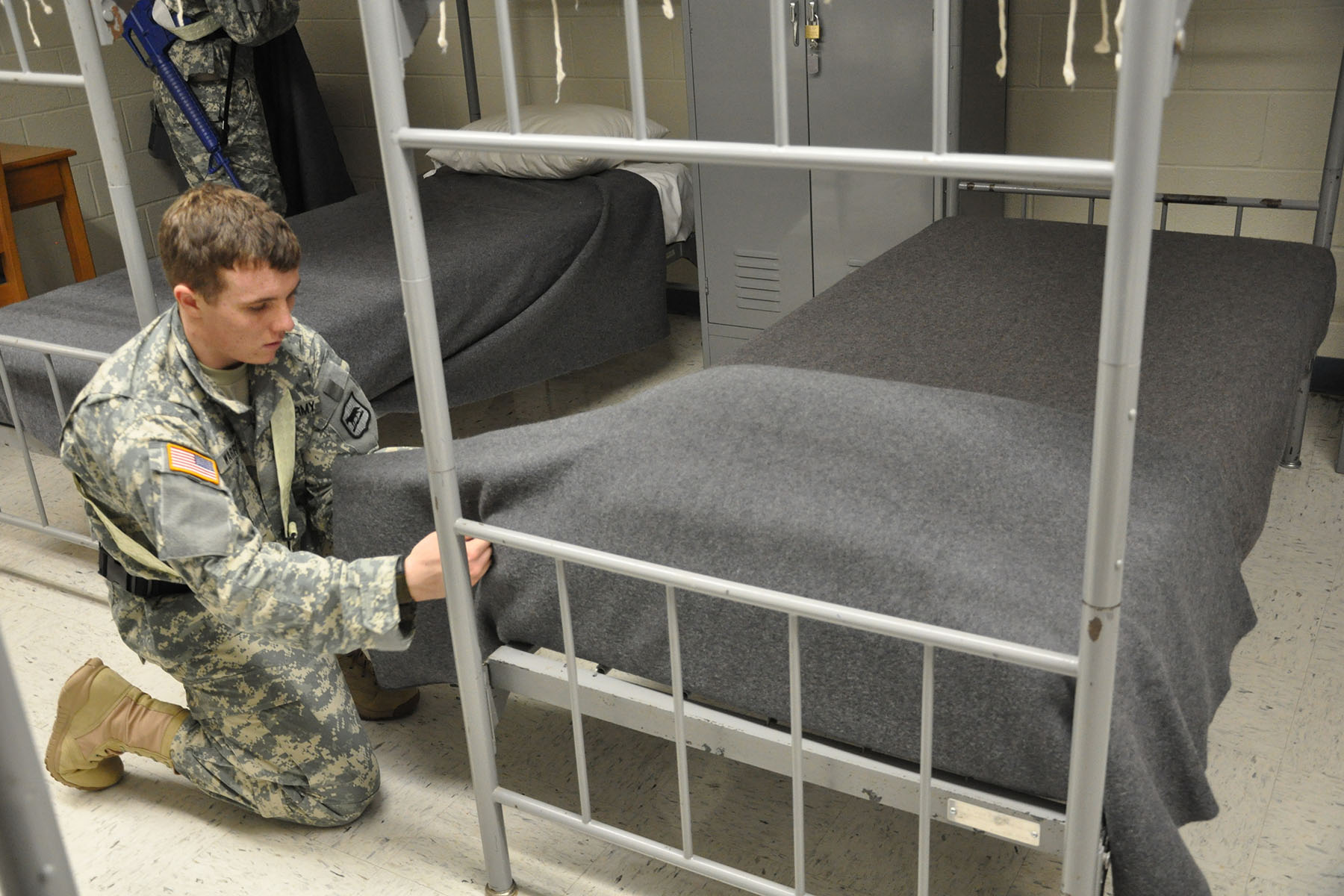

In preparation for times when sleep may be hard to achieve, such as during a combat mission or overnight operation, soldiers are recommended to get at least nine hours of sleep ahead of time. The Office of the Army Surgeon General recommends that soldiers sleep at least seven hours per night, although only a minimum of four hours is required during field training exercises. Getting good sleep is essential to a soldier’s day-to-day performance as well as their future mental and physical health. Moreover, studies of Army Rangers show that their testosterone levels are lower after the sleep loss they endure during training, at a time when they need it most for muscle repair and recovery. Studies indicate that when soldiers get fewer than four hours of sleep per night, it reduces their effectiveness in combat by 15% to 25%. Adults need seven to nine hours of sleep, and people with physically demanding lifestyles - like athletes and service members - may need more. Soldiers need the same amount of sleep as everybody else, if not more, depending on the physicality of their mission. Those in Ranger School only get around three hours per night. Even on the weekends, when they’re encouraged to sleep more, they still get fewer than seven hours. Military Academy cadets sleep fewer than five hours during the week and are woken up several times during the night for training. Typically, that five hours is split up into multiple episodes of sleep, usually lasting less than two hours each. Sleep During Trainingĭuring training exercises, service members may sleep fewer than five hours per night. Navy service members slept 5.9 hours on average, with 67% sleeping less than seven hours. Around 15% of Air Force personnel slept less than 4.5 hours. Naps were rare, and reported by only 16% of soldiers.Ī reported 86% of Army service members deployed to Afghanistan slept fewer than seven hours per night, and half slept fewer than five. Army soldier slept 5.8 hours per night, with short sleep more common among those who experienced combat. Sleep During Deploymentĭuring Operation Iraqi Freedom, the average U.S. Either of these is significantly shorter than the recommended minimum of seven hours for adults. Those who have been previously or are currently deployed sleep even less, at fewer than five hours per night. On average, 60% of service members sleep fewer than six hours per night.

Service members have difficulty getting adequate sleep for a variety of reasons, including the stressful and at times dangerous nature of deployment and training, comorbid conditions like post-traumatic stress disorder (PTSD), jet lag from frequent travel, and broader military culture.


For military personnel, that number climbs to 76%. In the United States, 37% of people regularly don’t get their recommended seven to nine hours of sleep per night.


 0 kommentar(er)
0 kommentar(er)
